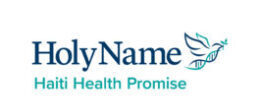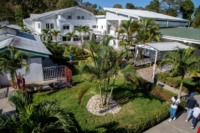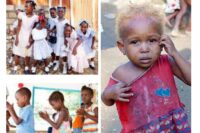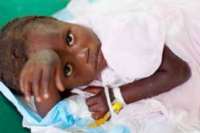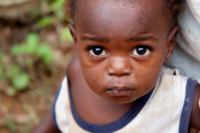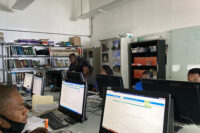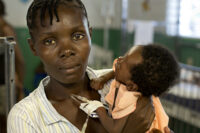 By Christine Kloosterman, R.N.
By Christine Kloosterman, R.N.
I first started volunteering at CRUDEM after the January 2010 earthquake. It was my first experience working as a volunteer nurse, my first experience working in a developing country, and my first experience doing the kind of work that makes a difference in such a big way: nursing in its purest, plainest form.
Since the earthquake, I have made four trips to Milot to volunteer at CRUDEM, each trip different from the last.
What I learned about Haiti, the people, and even myself through these trips has evolved, but the one thing that has remained constant is the way of caring for the patients that we don’t often get to do in the US.
In our world of modern medicine and nursing in particular, there is so much emphasis on the paperwork! Every week it seems that there is a new form to fill out: Joint Commission requirements, scales for skin integrity, SCDs, restraints, flu shots, admission databases, assessments, and on and on. By the time we have finished all of the paperwork, there is very little time left to care for the patient!
Patient care is what I love. It’s what made me want to become a nurse. The technical care – saving someone’s life during a code, recognizing changes in a patient’s condition, doing all the “fun” procedures; and the humane care – connecting with people, making a difference in their lives, in the quality of their lives and, at times, at the end of their lives: it’s what nursing should be about, and what I fear healthcare is losing sight of. At CRUDEM, we have the opportunity to focus on these things, and make a real difference in the lives of so many people.
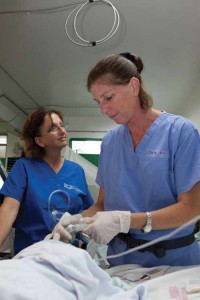 My first two trips to Haiti were short trips right after the earthquake.
My first two trips to Haiti were short trips right after the earthquake.
Although we were all very busy, there was still time to connect with people. It amazed me how strong and resilient the Haitian people are; their sense of community, of people coming together and caring for complete strangers as if they were family, and of praising God for all their blessings even in the face of such overwhelming tragedy. All made me want to spend more time in Haiti. I got that opportunity this summer when I spent three months at HSC working as the nurse leader. During that time I had so many different experiences, some of them wonderful, some of them heartbreaking. There are patients and staff members that I will never forget.
While I was there, I helped to take care of the burn patients. One of these was Micheal. Micheal was admitted during my first week in Haiti with burns to about 70% of his body and in very critical condition.
His first couple of weeks was very difficult for him. He was in a lot of pain, and his dressing changes were so extensive that it took two to three hours to scrub him and change them. At first Micheal was not very receptive of my caring for him.
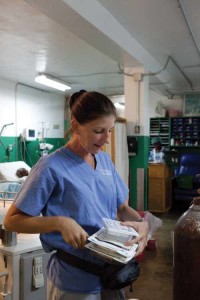 Actually, he hated me. During the dressing changes he kept pushing me away from him and shouting, “Don’t touch me, blanc!” This made it pretty hard for both of us. After a couple of days of this struggle, I suggested that we take him to the OR where we could adequately sedate him, and we could have a cleaner environment in which to clean him. This seemed to help a little.
Actually, he hated me. During the dressing changes he kept pushing me away from him and shouting, “Don’t touch me, blanc!” This made it pretty hard for both of us. After a couple of days of this struggle, I suggested that we take him to the OR where we could adequately sedate him, and we could have a cleaner environment in which to clean him. This seemed to help a little.
Over time he began to trust me. I tried to see him throughout the day so he could see I wasn’t just hurting him. He would laugh at me when I tried out new Creole phrases with him.
I started physical therapy, and got him into a chair and outside for some fresh air! Piti piti (little by little), I developed a connection with him and his wife – in fact, at one point one of the surgeons laughed that Micheal had two wives, one black and one white. Micheal was in the hospital the whole three months I was there. Saying goodbye to him and his wife when I left was one of the hardest things I have ever done. I think about him every day and wonder how he is doing, whether he is able to walk yet, or if he has gone home yet. I also wonder if I would have had the opportunity to develop this relationship here in the States, being so busy and not having as much time to put into it. I feel very fortunate to have been able to care for him.
There were definitely times when the reality of life in Haiti just hit me like a truck. In the US we have so many opportunities, and even when faced with difficult situations, there is help available. That is not always the case in Haiti. Another one of my burn patients was a little three- year-old boy named Beverly. Beverly had developmental delays from birth. He could not walk or talk and I don’t think he could see. He had severe burns to the backs of his legs and his bottom, and he, too, spent much of the summer in the hospital. As a result of his injuries, he developed contractures of his legs and was not able to straighten them out. I think it became clear to his mother that he would never be able to walk, and would require constant care that she was unable to provide.
While Beverly was in the hospital, there was a little baby in the NICU who had lost his parents to cholera. When it was time for that baby to leave the hospital, he went to an orphanage. The day that the woman in charge of the orphanage came to get the baby, Beverly’s mom told me that she wanted Beverly to go to the orphanage, too. I was heartbroken for Beverly and his momma. She clearly loved him very much, but was faced with a future of caring for a special-needs child with no help. Her only option was to send him to an orphanage, where he might get the help he needed.
In the US there are many different ways to help children like Beverly. Back home, I would have just picked up the phone and called a social worker, who would have hooked her up with children’s rehabilitative services or something similar. There are no such options in Haiti. Over the next few weeks, Beverly’s momma asked me a few times if I wanted to be Beverly’s mom, and when I left she asked me to take him with me. How I would have loved to give him the opportunities we have here in the States! I don’t know what has become of Beverly and whether he went home or to the orphanage. I worry about him a lot.
There are so many things about Haiti that I miss. I love the fact that I got to know the Haitian nurses and staff better – they are truly amazing people. I miss getting to know a new group of volunteers every week. Some of them were so much fun, and I hope to see them again sometime. But most of all, I miss caring for patients in the way we can in Haiti. If you look up “nurse” in the dictionary, it is defined as “A person trained to care for the sick or infirm, or to give medical advice and treat minor medical problems. To hold or treat carefully. To foster, promote the development of.” It is the very definition of nursing at CRUDEM.
